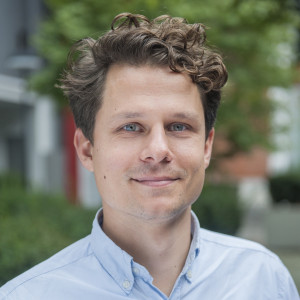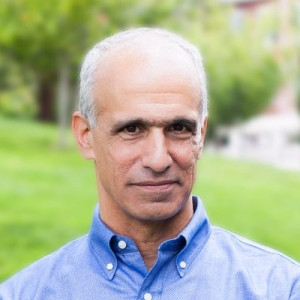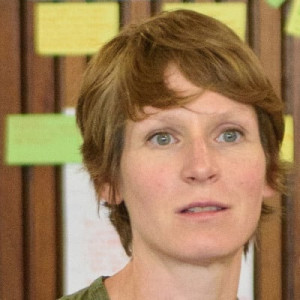Investors in Change
2021
The need for systems change
Funders across sectors play a catalytic role to deploy resources nimbly and sustainably in a fast-changing world.
The Investors for Change learning modules equip strategic decision-makers in philanthropic, impact investing and public sector organisations with the capabilities to work on systems change initiatives; enabling them to navigate and address complex challenges, reduce risk, accelerate learning across teams and networks, and drive innovation and impact.
What you'll learn
Our modular learning helps you navigate the rapidly changing field of systems change and adopt the practices that best fit the pace of your work and team. Each module introduces multiple frameworks and methodologies, with the support of experienced system change practitioners.
- Online learning modules running at different times of the year in different timezones
- A unique opportunity to cultivate connections globally with other investors in change and practitioners from the Americas, Europe, and Africa
- An introduction to a diversity of conceptual system change frameworks and tools coming from different worldviews
- A chance to engage in pioneering systems practice while developing your own learning journey and approach fitting to your organisation
Learning Outcomes
Through this course, you will:
- apply multiple tools and methods from the cutting edge of the systems change field
- collectively explore some of the key questions such as power and equity, role of funders in systems change, regenerative economies and working as an ecosystem
- start to experiment with new approaches and strategies, with the help of experienced practitioners and coaches
- connect to an active community of systems leaders across the world
- skill up in key system change capabilities such as systems diagnosis, systems change strategies from a funder perspective, learning and impact
Modules
Module Structure
Each five-week module is structured with kick-off and closing weeks and three weeks of peer learning group calls and coaching support in between, with the following:
- Facilitated online sessions for the full cohort and smaller groups via video calls, approximately a total of 19 hours of instruction time
- Group coaching in practice, with feedback and support from an experienced facilitator to support your growth as a systems change practitioner
- A tailored online learning environment and set of learning resources
- Readings, exercises and reflection to be completed in your own time
Module 1: Funding in a Complex World
This module provides frameworks and concepts in systems diagnosis practice to help you better understand complexity and uncertainty as a funder.
In this module, we will be stepping into a complexity worldview to understand and diagnose issues on a systemic level through:
- Gaining frameworks and concepts in systems diagnosis practice
- Learning from other funders about where they are in their systems practice journey
- Challenging assumptions about the ways of working as a funder
- Inquiring into your own systems learning journey and setting up intentions for next steps into your systems practice.
Learning outcomes include:
- Equipped with a better understanding how to work with complexity and uncertainty as a funder
- Seeing the change journey towards systems practice and locating yourself on this journey
- Initiated into tools and approaches for interconnections and systemic challenges
Module 2: Funder Strategies for Systems Change
This module explores different systemic strategies that can be cultivated in order to impact change.
In this module, we will be creating a space to explore and try out the different systemic strategies that can be cultivated in order to impact change including:
- Taking time to consider the role and function of financial resources and working with the inherent power dynamics this comes with;
- Nurturing the base skills, capabilities and confidence needed to creatively work with complexity and emergence in order to design and create appropriate systemic strategies for your context; and
- Creating a safe space for you to reflect on your current practice and explore what might enable greater impact in the future.
Learning outcomes include:
- Better understanding of a range of different strategies for change in the context of power and money
- Confidence in testing out practical tools and approaches for designing and creating systemic strategies
- Seeing the change journey towards systems practice
Module 3: Learning & Impact
This module explores the landscape of different approaches to understanding and tracking systemic learning and impact, and what it takes to create a learning culture/organisation.
In this module, we will be exploring the landscape of different approaches to understanding and tracking systemic learning and impact including
- Delivering into practices and approaches to evaluation and monitoring and what it takes to create a learning culture/organisation, and
- Exploring the characteristics and principles that can guide healthy, authentic and meaningful change at a personal, organisational and ecosystem level and enabling collective development.
Learning outcomes include:
- Better understanding of a range of different approaches to understanding impact
- The role and approaches to learning that supports systems change
- Exploring what we value and how we value it
- Seeing the change journey towards systems practice
Cohort
Investors in Change is for people in strategic decision-making roles within their teams and organisations wanting to invest in systemic change (funders, philanthropy, impact investors, public sector). It's for you if:
- You want to champion for new approaches, funding models and mindsets within your organisation
- You want to experiment with new ways of working and want to take strategy up a level
- You are seeking practical ideas, questions, frameworks and tools to help you and others work differently
- You want to learn from peers including experienced practitioners across the foundation/investment space
Hosting team
Contributors

Gurpreet Singh
Senior Program Manager at Roddenberry Foundation
Contributor
As a Senior Program Manager at the Roddenberry Foundation, Gurpreet contributes to the ...

Phumlani Nkontwana
Founder & CEO at Fuata Africa; Founding Director at Centre for Africa Entrepreneurship
Contributor
Phumlani is an adjunct lecturer with the University of Cape Town Graduate School of Bus...

Rodrigo Bautista
Design and Innovation Lead at Forum for the Future
Facilitator
Rodrigo Bautista is an award-winning designer from ICSID and AIGA and founder of 21st C...

Dominic Hofstetter
Director of Capital & Investments at Climate-KIC
Contributor
Dominic Hofstetter is the Space Building Lead of the TransCap Initiative. He initiated ...

Anna-Marie Harling
Director and Lead, Philanthropic Collaboration at Co-Impact
Contributor
Anna-Marie combines practical experience and academic rigor in her work with philanthro...

Robert Ricigliano
Systems & Complexity Coach at The Omidyar Group
Contributor
As Systems & Complexity coach at The Omidyar Group, Rob supports teams as they engage w...

Rinku Sen
Executive Director at Narrative Initiative
Contributor
Rinku Sen, Executive Director of Narrative Initiative, is a social justice strategist a...
Contributors also include Mary Tangelder, Mastercard Foundation; Alice Evans, Lankelly Chase; Ruth Rominger, Garfield Foundation; Cassie Robinson, National Lottery Community Fund; Olga Shirobokova, Ashoka; Glenn Page, Blue Marble Evaluation; Jenny North, Dartington Service Lab; Chene Swart, Transformations; and Noura Kamel, Mastercard Foundation.
Enrol
FAQs
I am balancing my professional role in addition to participating in this module. What is the time commitment expected of participants?
Each five week module has approximately 19 hours of instruction time with more time allocated during the first week. We try to schedule coaching sessions in week 2 to 4 to accommodate the availability of those in the small groups and the coaches. Refer to the module structure above.
We ask enrolled participants to block off the half sessions early in their work schedules to have dedicated time to the sessions.
What times are the sessions?
Modules are offered at different times of the year and accommodated to different time zones. Kindly note which module session you would like to enrol in as well as your working timezone on your enrolment form, so our module team can onboard you to your preferred session.
I am not sure if this learning offering is right for me/my organisation. Who can I reach out to ask more questions?
Please reach out to [email protected] to share more about where you are in your learning journey with the module team.
Co-initiating Partners
School of System Change
The School of System Change is a learning provider with the ambition to serve the emerging field of systems change, as a vehicle for connecting and amplifying spheres of learning and practice. We enable personal and collective agency to cultivate change in the world with a multi-method approach to systems change learning - with networks, organisations and individuals. The School has a range of online and in-person learning offerings depending on the level of systems change practice among changemakers.
Forum for the Future
Forum for the Future is a leading international sustainability non-profit. For more than 25 years we’ve been working in partnership with business, governments and civil society to accelerate the shift towards a just and regenerative future in which both people and the planet thrive.
Forum is focused on enabling deep transformation in three game-changing areas: how we think about, produce, consume and value both food and energy, and the purpose of business in society and the economy.
Ashoka
Ashoka is the largest network of social entrepreneurs worldwide, with more than 3,200 Ashoka Fellows in 83 countries putting their system changing ideas into practice on a global scale. Founded by Bill Drayton in 1980, Ashoka has provided financial support, professional pro-bono partnerships, connections to a global network of peers, and a platform for people dedicated to changing the world. Ashoka launched the field of social entrepreneurship and has influenced key global players across sectors to recognize and nurture the potential of entrepreneurial talent to solve social problems.
Working across its network of leading social entrepreneurs and strategic partners, Ashoka has been able to spot key patterns and trends, and therefore enable collective entrepreneurship around emerging frontiers: empathy, new leadership, team-of-of teams work, and changemaking. With Ashoka Fellows at the center, Ashoka is enabling an “Everyone a Changemaker” world in which everyone sees their own potential to see a problem, develop a solution, and put the idea into action.
Catalyst 2030
Catalyst 2030 is a global collaborative multi-stakeholder movement initiated by leading social entrepreneurs from Ashoka, Echoing Green, Schwab, Skoll and others from some of the most prestigious global networks of social innovators. The group is inclusive and rapidly expanding to include governments, funders, bilaterals, multilaterals, and other intermediaries from across the globe.
Catalyst 2030 members have come together to accelerate progress towards the SDGs by radically transforming the social sector to adopt systems change approaches and by propelling systems change at a country level. Together, the aim is to drive a significant dent in the climate crisis, the reduction of poverty and to leave a lasting and positive impact on the lives of many millions of people.
Lankelly Chase
Lankelly Chase is an independent foundation working in partnership with people across the UK to change the systems that perpetuate severe and multiple disadvantage. Originally formed in 1962, Lankelly Chase’s work is now focused on creating an environment where people have the skills, motivation and freedom to help create a system that effectively responds to the interlocking nature of severe disadvantages, such as homelessness, drug misuse, violence and abuse, extreme poverty and mental ill health. Lankelly Chase is driven by a belief that people are resourceful and have strengths, and that collectively we can find solutions and create a fairer society where we are all able to thrive.













